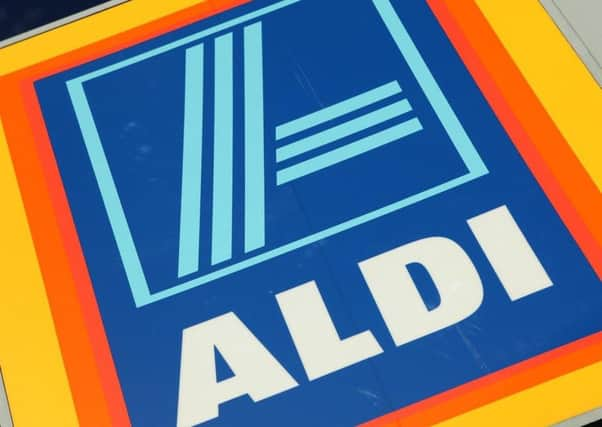Sterling decline threatens cheaper groceries


It said that historically, higher prices have led to consumers looking for less expensive alternatives such as own-label products, brands on promotion or visiting cheaper retailers.
The news will pile further gloom on Yorkshire’s leading supermarkets, Asda and Morrisons. Leeds-based Asda’s sales fell a further 5.9 per cent in the 12 weeks to June 19 while Bradford-based Morrisons’ were down 2.4 per cent, although this reflects Morrisons’ store disposals.
Advertisement
Hide AdAdvertisement
Hide AdMeanwhile the combined share of discount retailers Lidl and Aldi has hit a record high of 10.5 per cent. Almost three fifths of Britons – 58 per cent – visited one of the two retailers in the past 12 weeks.
Sterling has fallen around 10 per cent since Britain’s shock vote to leave the EU last Thursday and threats of an imminent recession have not helped the nation’s currency.
Fraser McKevitt, head of retail and consumer insight at Kantar Worldpanel, said that if sterling continues at this level, the price of fruit and vegetables are likely to rise the most, followed by commodity-based goods such as cereals and bread.
“It’s very hard to judge how much prices would go up by,” he said.
Advertisement
Hide AdAdvertisement
Hide AdHe added that Morrisons could be better off than its rivals as it produces and sources so much from the UK.
He said that if the UK does fall into recession, the grocery market has historically proved itself to be fairly resilient.
“I don’t think we’ll see a great crisis,” he said.
“While these latest figures predate the EU referendum result, the immediate economic uncertainty is unlikely to cause a substantial fall in grocery volumes, as demonstrated by the 2008 financial crisis when basic food, drinks and household sales proved resilient.“
Talking about Morrisons and its renaissance under chief executive David Potts, Mr McKevitt said it is hard to tell how the firm is doing as the numbers are skewed by store disposals.
Advertisement
Hide AdAdvertisement
Hide Ad“My gut instinct is they are fixing some of the basics and that has to be a good thing,” he said.
He said that Asda’s decline “speaks for itself”.
“The problems remain the same. They have got rid of the boss and got a new boss,” he said.
“The price message doesn’t have the currency it had a decade ago.”
Aldi’s sales increased 11.5 per cent, taking its market share to 6.1 per cent, while Lidl’s sales rose 13.8 per cent, taking its share to 4.4 per cent.
Advertisement
Hide AdAdvertisement
Hide AdSales at Tesco fell 1.3 per cent and Sainsbury’s sales fell 1.4 per cent. The Co-op enjoyed a 2.0 per cent increase.
Overall UK grocery sales fell 0.2 per cent, while deflation was 1.4 per cent.
Falling prices reflect the impact of Aldi and Lidl and the market’s response, as well as deflation in major categories such as bacon, butter, and detergents.
The data predates Thursday’s referendum.